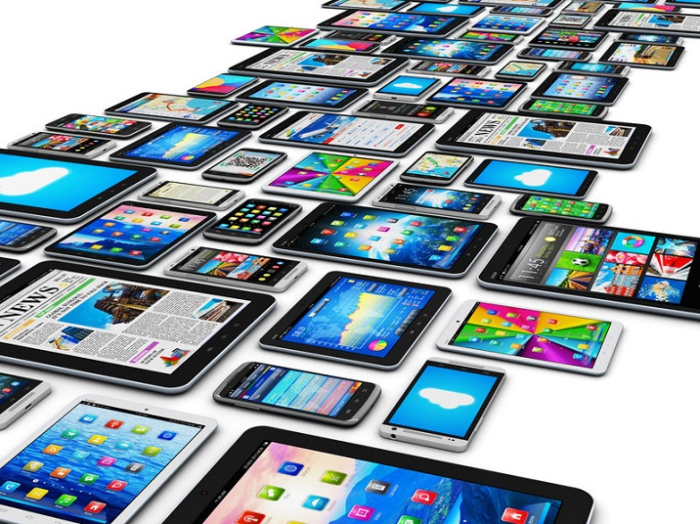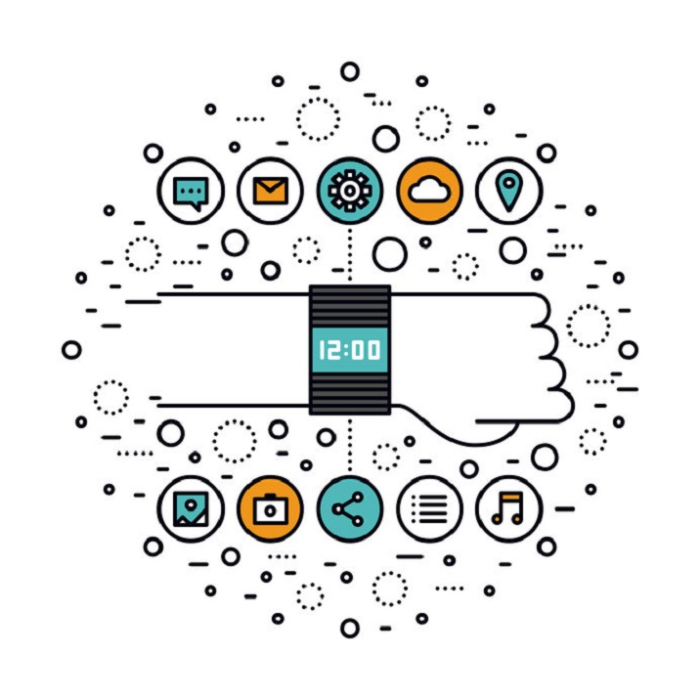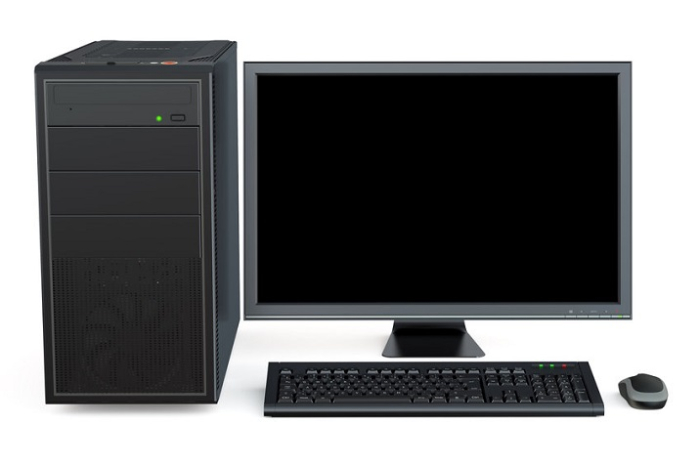
 Data Structure
Data Structure Networking
Networking RDBMS
RDBMS Operating System
Operating System Java
Java MS Excel
MS Excel iOS
iOS HTML
HTML CSS
CSS Android
Android Python
Python C Programming
C Programming C++
C++ C#
C# MongoDB
MongoDB MySQL
MySQL Javascript
Javascript PHP
PHP
- Selected Reading
- UPSC IAS Exams Notes
- Developer's Best Practices
- Questions and Answers
- Effective Resume Writing
- HR Interview Questions
- Computer Glossary
- Who is Who
Are the days of the personal computer over
Are the days of the personal computer over? Is the ’uncrowned king of computing’ going to be just a reminiscent of the past in the near future? Is the current form of the personal computer going to have its place just in the books of the future generation?

This, my friends, is a question that has led to an endless stream of ambiguity and possibilities among technological researchers. With the exponential increase in the availability of handheld alternatives like smartphones, tablets, and 2 in 1 convertible and a plethora of other options at a flabbergasting rate, it seems obvious that the PC market has taken a powerful blow.
Perhaps the biggest cause behind the decline of the personal computer is the rise of the Smartphones. This new era of handheld computers began with the ascension of the Apple iPhone, back in 2007. Following this, other tech giants like Google and Microsoft also had their hands dipped into the Smartphone market.
The Rise of the Smartphone Market
Smartphones with operating systems like the Symbian OS and various other Linux based operating systems used to be the most ‘talked about’ gadgets back in the early 2000s. But, back then, these over hyped gadgets were no match for the personal computer in terms of usability, credibility, efficiency, cost efficiency, and compatibility.

The areas where the smartphones of the past had the upper hand over the PC are mobility and connectivity. Back then, a smartphone used to be just a costly and fancy gadget that bestowed upon its owners, a handful of extra functionalities and some obvious bragging rights. Fast-forward to 2016, and the whole scenario has changed.
Some Facts and Figures
We live in a world that has transcended from using traditional Desktop Computers to handheld Smartphones and Tablet computers. Indeed, we have come a long way within a very short interval of time. Our inclination towards more powerful devices packed in smaller and smaller devices has brought a sea-change in the approach of manufacturers.

According to a survey conducted by IDC on worldwide smart connected device market share, in 2013, smartphones had a whopping share of 65.33%, tablet computers and 2 in 1 convertibles had a share of 14.19% and laptops and desktops had a share of a mere 11.89% and 8.89% respectively.
This share further decreased for laptops and desktops to 7.71% and 5.71% respectively in 2016. Furthermore, it is speculated for these figures to decrease even further to 6.9% and 4.9% by 2018.
The Dominance of the Smartphones
The aggressive smartphone market is responsible for the decline of the PC market in more than one way possible. Due to the stiff competition in the smartphone market, smartphone manufacturers began going ‘toe to toe’ with one another.

Smartphones began possessing more and more functionalities and started getting cheaper and cheaper. As adding fuel to fire, newer technologies are being aggressively developed within very shorter periods of time. With the incorporation of newer technologies, smartphones are getting smarter as the days pass by.
For an instance, just a year ago, a fingerprint scanner was a jewelry for the high-end devices. But, within a few months, every other device available on the market have fingerprint scanner. Even the budget-oriented smartphones are equipped with fast and responsive fingerprint scanners.
And it goes On
Another noticeable advantage of the smartphone market is the exponentially ever improving spec-sheets of the smartphones. RAMs, CPUs, Batteries and other storage units with higher capacities are being cramped up within these handhelds. Even the screens within the smartphones are getting better day by day.

Just about two years ago, a 1 GHz dual core processor coupled with 1 GB of RAM used to be a hefty specification for a smartphone. Now, in 2016, even the budget smartphones have a minimum of 1.5 GHz octa-core processor coupled with a minimum of 3 GB of RAM. It is easily noteworthy that, just within a small time window of two years, the efficiency of smartphones has more than doubled.
The Fall of The PC
Contrasting to the aggressive smartphone market, the PC market has not much to compete. Of course, various new innovations and technologies are being developed for PCs. But, the rate of this development seems as slow as a slug when compared with the rate of the development of smartphone.

Moreover, now a day, there are some specific tasks that can be accomplished with a smartphone which a traditional PC can simply never do. Some of the best examples of these tasks could be Virtual Reality, Motion Gaming, Fitness Monitoring, and GPS Navigation.
Some Other Factors
Just as sprinkling salt on a wound, even the corporate world is also shifting towards tablets and smartphones for various functionalities like video conferencing, emailing, presentations, and much more.Even if we look at the specifications of PCs, nothing much has improved since the last 2 years.
Yes, some minor advancement has been made. But, comparing it with the fast paced development of the smartphones, you won’t find any major noticeable difference while comparing two PCs within the same price segment from two years ago and from today.
Another reason for the decline of the PC and the popularity of the smartphones is the usability of the smartphone. You need to be literate up to a certain level and need someone for guidance to use a PC for the first time. But, even a 5-year-old can operate a smartphone quite fluidly and flawlessly.
PC’s Still Got Some Fight Left
Despite so many reasons for the death of the PC, the question still persists. Are the days of the personal computer really over? It seems like the days of the personal computer are over, but not yet. First of all, if it weren’t for the PC, smartphones and other so-called ‘smart’ devices have never had been in existence.
A great number of software developers, programmers, writers, gamers, and etcetera depend on PCs to earn their livelihood. Various industries would turn into ‘the realms of nothingness’ if PCs are to be taken away from within them. The worst hit will be the gaming industry, which stands to lose millions, if PCs were to immediately become obsolete.
The new-age laptops simply don’t come with the hardware needed to withstand hours of heavy duty processing that the sophisticated games of today demand. Also, the playing experience will be vastly different over a laptop, as compared to a PC, where you can choose what size of screen you want it to be attached to your processing unit, as long as the processing unit is a stand-alone part. Laptops come configured with screens, and mobile screens won’t give you much room to enjoy first-person action games.
Many Applications need PCs
Working on a fancy tablet or a smartphone may seem cool. But, it is nothing as compared to the homely experience of the PC. There are certain fields like industrial automation, data storage, satellite communication for which the ‘smart’ handhelds are simply not just yet ‘cut out for’. Even a vast majority of gamers would prefer a PC over a handheld device.
There is a plethora of softwares and applications that are not yet made for handheld devices. You can’t design a layout of a building using a smartphone. You can’t make web-pages; edit high definition videos: program industrial controllers and micro-controllers using a handheld device yet.
It would be very wrong to say that the days of the PC are over. Maybe, in the near future, the personal computer may go extinct as handhelds gradually overcome all their drawbacks, but, not yet. Still, it is just a matter of perception. Even the handheld mobile devices that we use today are just different manifestations of the PC itself.
According to Darwin’s theory of evolution, we humans are a result of the evolution of the apes. In fact, we humans are just a variety of smart and hairless apes with an incredible ability to stand upright after all. Likewise, the PC is also being subjected to evolution and evolve it shall. Even if it may look and feel a little different in the future.

